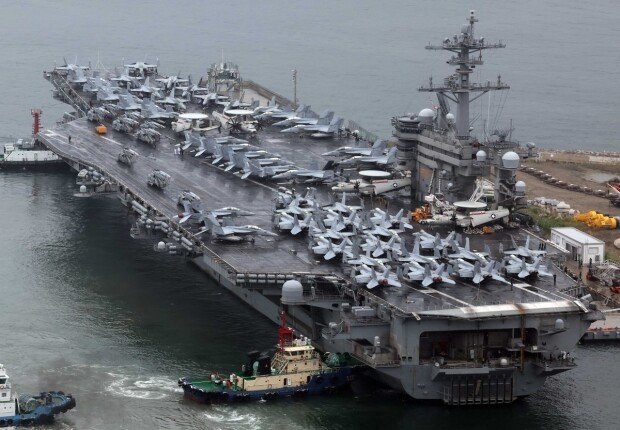INSS: Seoul’s independent nuclear program amid growing threat
INSS: Seoul’s independent nuclear program amid growing threat
Posted June. 24, 2024 08:05,
Updated June. 24, 2024 08:05

The Institute for National Security Strategy (INSS), a government-funded research institute under the National Intelligence Service, advised that the government should consider securing nuclear disarmament independently, developing potential nuclear capabilities, and taking other various measures with public discussions to strategically take place at the same time. “I think we cannot rule out the fact that South Korea continues to move, maybe more rapidly, toward its own nuclear program,” Allison Hooker, former senior director for Asia at the National Security Council, said last Friday (local time). “But I think this definitely, the deepening relationship with Russia kind of pushes them in that direction.”
As Russia and North Korea have signed a treaty by which Russian military intervention could automatically follow in case of war, experts are bringing elevated attention back to South Korea’s nuclear program as one of the possible responses to make. In particular, related remarks were made around the same time by both the South Korean state-funded research center and the former U.S. official who got deeply involved in North Korean nuclear issues until recently. After all, the Russia-North Korea military alliance is posing a growing threat not only to the Korean peninsula but also to global security. In response, some experts say that Seoul’s nuclear program will start being actively discussed beyond the U.S. “nuclear umbrella.”
In a report regarding the implications of the Russia-North Korea summit talk for the Korean peninsula released last Friday, INSS evaluated that Russian President Vladimir Putin treated North Korea as an effective nuclear state on his recent visit to Pyongyang, expecting that the North Korean regime will likely strengthen its efforts to secure its nuclear state status in its relations with major countries such as China. To respond to North Korean nuclear issues, Seoul should consider redeploying tactical nuclear arms, sharing nuclear deterrence as done by the North Atlantic Treaty Organization (NATO), and running its independent nuclear program. NATO's sharing of nuclear deterrence makes sure that U.S. tactical nuclear arms are deployed in other NATO member states so that they can carry out nuclear attacks jointly by mobilizing bombers in case of war.
Jin-Woo Shin niceshin@donga.com







